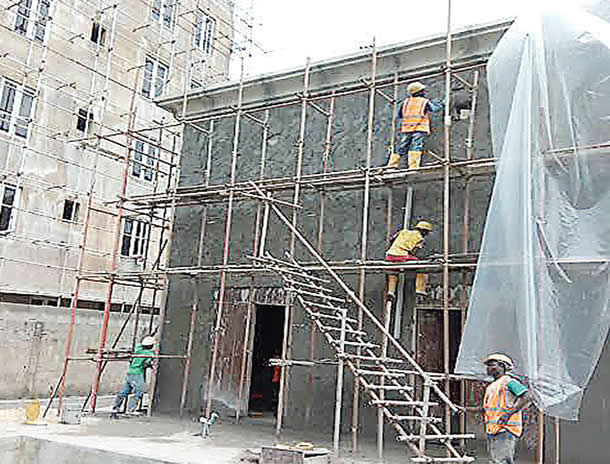The Registrar, Architects Registration Council of Nigeria, Umar Murnai, has called on the National Assembly to accelerate action towards delivering a law that would give legal backing to the National Building Code.
Murnai, in a statement made available to newsmen, said the absence of an enabling legislation for the document had largely contributed to its ineffectiveness in the area of regulating procedures and processes in the nation’s real estate industry.
He spoke recently in Abuja during a week-long programme organised by the Council for the Regulation of Engineering in Nigeria where engineers gathered to discuss “Domestication and Development of Codes, Standards and Regulations as Panacea for Engineering Infrastructural Failure in Nigeria.”
Speaking on “National Building Code: “Challenges and Solutions for Modern Infrastructure,” Murnai noted that currently, the code had yet to be backed by any legislation, which explained why most professionals had yet to accept it as a document to guide real estate development in Nigeria.
He said the code provided that all state governments and the Federal Capital Territory should domesticate the document, but wondered why many of the states had yet to begin the process of domesticating the code
Murnai said the aim of the building code was to establish minimum requirements to safeguard public health, safety and general welfare in the process of pre-design, design, construction and post-construction stages of the life cycle of buildings and structures.
He said, “Building code and regulations exist to safeguard the public health and general welfare from fire and other hazards attributed to the built environment.
“It is to establish minimum requirements to safeguard public health, safety and general welfare in the processes of pre-design, design, construction and post-construction stages of the life cycle of building and structures.”
Murnai added, “The code was produced and approved in the year 2006 for use in Nigeria. It is to among others, address incessant collapse of buildings, fire incident in buildings and other disasters; dearth of referenced design materials for professionals; and use of non-professional.
“Others include the use of untested products and materials; inadequate planning of our towns, cities and other built environment abuses; lack of adequate regulations and sanctions for non-compliance; and inadequate database to aid sustainable building process.”

